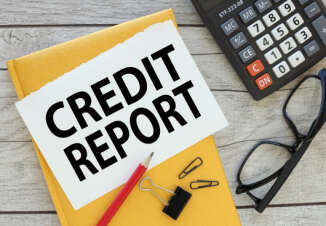The content on this page is accurate as of the posting date; however, some of the offers mentioned may have expired.

Although we are careful enough it is still possible to fall into bad credit. All it takes is a few missed payments or late payments and that will instantly get reflected on the credit report. However, it is important to understand that falling into bad credit is a part and parcel of life. It is not always possible to maintain good credit throughout our lives and we can sometimes be the unfortunate ones to fall into bad credit. It is important not to lose hope but work towards building on your credit rating and turning it into good credit.
For this we will look at specific steps to do the necessary repairs but that will depend on what is in the credit report. Before you get down to repairing credit, you will have to avail a free copy of your credit report and go through all the negative information that is contained in the report. You should also receive an appropriate explanation of the things that have a negative impact on your credit rating. This way, you will get a better idea as to what to improve on your credit report and you can start working on that area.
A few tips on how to fix the problems in your credit report:
- Discrepancies on your credit report – most credit reports contain discrepancies or inaccurate information. If you find any errors or information that is inaccurate, it is best to bring it to the notice of the credit reporting agencies as this could be seriously affecting your credit rating. You should have the inaccurate information removed at the earliest.
- Ensure that your payment history is good as it has a huge impact on the credit score. Pay off the amounts on accounts that are 30 to 60 days late or the late payments could take its toll and affect your credit. You can negotiate with the lenders to remove the collection accounts and charge offs from the credit report.
- Always ensure that you don’t use up your entire credit limit. Ideally, you must stay within 30% of your credit limit. Focus on getting the over-the-limit balances to a limit that is below the allowed credit limit. This will help save on expensive fees. You can then work on bringing down your credit card balances.
- You must ensure that you pay up the outstanding judgments or they will continue to hurt you till it is paid off or after a lapse of seven years.
- Student loan defaults are common and you can find out from the lender and get the student loan out of default. If you make timely payments for several months, then your student loan will get the ‘current’ status.
- When you have bankruptcies, paid judgments, paid tax liens, foreclosures, then there is nothing that you can repair. All you need to do is to focus on rebuilding bad credit and add positive payment history. This is one way to demonstrate that you are capable of managing credit.





